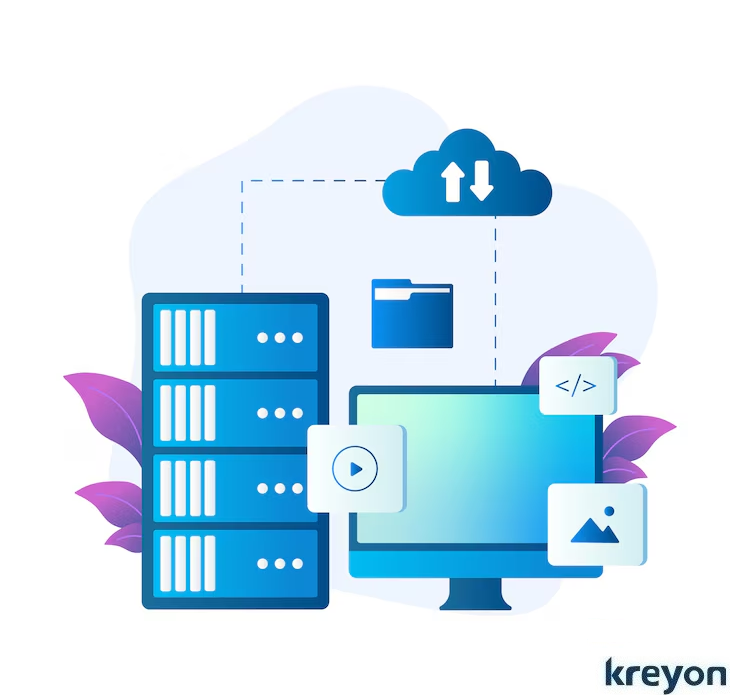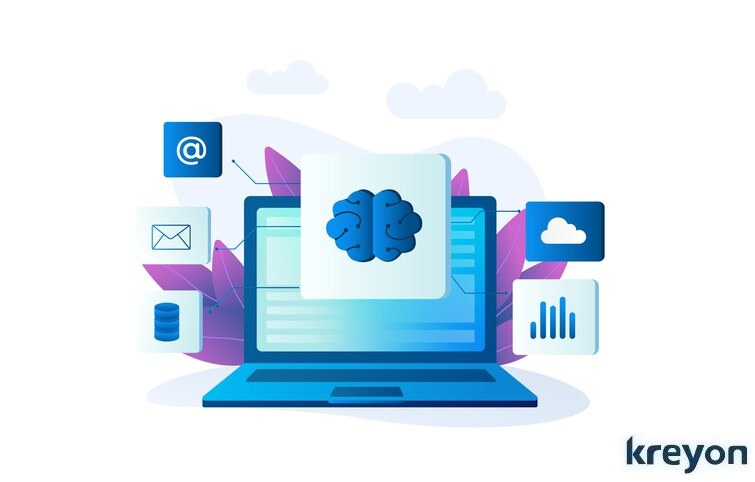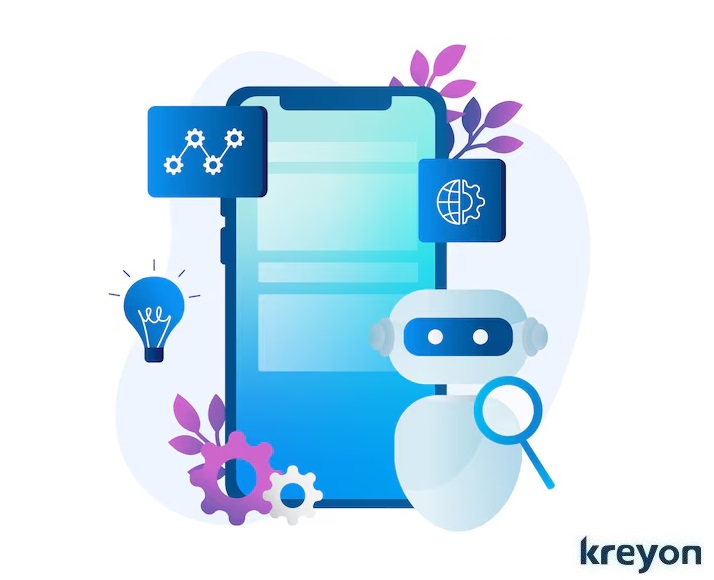AI-Driven Data Center Management: Transforming Efficiency, Security, and Management

The data center is the backbone of modern IT infrastructure, supporting a vast array of services from cloud computing to enterprise applications.
The rapid evolution of technology has transformed the way businesses operate, and data centers have become the backbone of this digital transformation. As the volume and complexity of data continue to grow exponentially, traditional data center management methods are struggling to keep pace.
This is where artificial intelligence (AI) comes into play, offering innovative solutions to enhance efficiency, security, and overall management of data centers.
AI technologies offer the potential to significantly enhance efficiency, security, and management within data centers.
This article explores the transformative impact of AI in data centers, highlighting its applications, benefits, and future potential.
1. The Role of AI in Data Center Management

AI encompasses various technologies such as machine learning, deep learning, and natural language processing. In the context of data centers, AI can be applied to optimize operations, predict issues, and enhance overall performance. Here’s how data center management can be improved with AI
Capacity Planning and Resource Allocation
Demand forecasting: AI can predict future workload demands, enabling organizations to plan capacity expansions or reductions accordingly.
Resource allocation optimization: AI can allocate resources efficiently based on workload demands, ensuring optimal utilization and minimizing costs.
Data center consolidation: AI can identify opportunities for data center consolidation, reducing operational costs and improving efficiency.
2. Enhancing Operational Efficiency
By leveraging AI-powered tools and solutions, organizations can optimize energy consumption, enhance predictive maintenance, improve security, and streamline operations.
a. Predictive Maintenance
Monitoring and Analytics: AI algorithms can analyze data from sensors and historical performance to predict potential hardware failures before they occur. This proactive approach minimizes downtime and reduces maintenance costs.
Automated Alerts: Machine learning models can identify patterns that signal imminent issues, triggering automated alerts and initiating preventive measures.
b. Resource Optimization
Dynamic Resource Allocation: AI can dynamically allocate computing resources based on real-time demand, optimizing the use of servers and reducing energy consumption.
Load Balancing: AI-driven load balancing ensures that workloads are distributed evenly across servers, enhancing performance and preventing overloads.
c. Energy Management
Energy Efficiency: AI algorithms can optimize cooling systems by adjusting cooling based on real-time temperature and workload data, leading to significant energy savings.
Green Data Centers: AI supports the development of energy-efficient data centers by analyzing power consumption patterns and recommending adjustments to reduce the carbon footprint.
3. Improving Security

AI can analyze network traffic patterns to detect anomalies that may indicate security threats for data centers. AI-powered security systems can identify and respond to intrusion attempts, protecting sensitive data.
a. Threat Detection and Response
Anomaly Detection: AI systems can detect unusual patterns and behaviors in network traffic, identifying potential security threats such as cyberattacks or unauthorized access.
Automated Response: AI can automate responses to security incidents, such as isolating affected systems or blocking malicious traffic, reducing the response time and minimizing damage.
b. Access Control
Biometric Authentication: AI-powered biometric systems, such as facial recognition or fingerprint scanning, enhance physical security by controlling access to data center facilities.
Behavioral Analysis: AI can monitor user behavior and detect deviations that might indicate compromised credentials or insider threats.
c. Data Protection
Encryption and Privacy: AI can manage and automate data encryption processes, ensuring sensitive data is protected both at rest and in transit.
Compliance Monitoring: AI can help ensure compliance with data protection regulations by monitoring and auditing data access and usage.
4. Optimizing Data Center Management
The ever-increasing demand for data storage and processing has led to complex and resource-intensive operations. To meet these demands while maximizing efficiency, cost-effectiveness, and sustainability, data center managers are turning to artificial intelligence (AI)
a. Automation and Orchestration
Workflow Automation: AI can automate routine tasks such as system provisioning, software updates, and backup processes, reducing the administrative burden on IT staff.
Orchestration: AI-driven orchestration tools manage complex data center environments by coordinating resources, applications, and services efficiently.
b. Performance Monitoring
Real-Time Analytics: AI provides real-time insights into data center performance, helping to identify and resolve issues quickly.
Trend Analysis: Machine learning models analyze performance trends over time, helping to optimize infrastructure and improve long-term planning.
5. Enhancing User Experience

AI-powered virtual assistants can understand and respond to natural language queries, providing quick and accurate assistance. AI is helping data centers with:
a. Service Quality
Predictive Analytics: AI can predict and mitigate potential service disruptions, ensuring high availability and reliability for end-users.
Personalization: AI can analyze user behavior and preferences to deliver personalized services and experiences, improving user satisfaction.
b. Support and Troubleshooting
AI Chatbots: AI-powered chatbots can provide instant support to users, answering queries and troubleshooting issues without human intervention.
Diagnostic Tools: AI tools can diagnose and resolve technical issues faster by analyzing logs, patterns, and system data.
6. Future Trends and Innovations
AI can analyze user preferences and behavior to deliver personalized recommendations for resource allocation, configuration settings, or software updates. Here’s a look at
some of the AI trends and innovations useful for data center management.
a. Edge Computing Integration
AI at the Edge: As edge computing grows, AI will play a crucial role in managing and optimizing edge data centers, where processing power is distributed across multiple locations.
Real-Time Processing: AI will enable real-time data processing and decision-making at the edge, reducing latency and improving performance.
b. AI-Driven Data Analytics
Advanced Insights: AI will provide more advanced analytics capabilities, offering deeper insights into data center operations and user behavior.
Predictive Modeling: Enhanced predictive models will forecast future trends, enabling proactive management and optimization.
c. Autonomous Data Centers
Self-Optimizing Systems: Future data centers may become fully autonomous, with AI managing all aspects of operations, from resource allocation to security.
Zero-Touch Management: AI will enable zero-touch management, reducing the need for human intervention and further increasing efficiency.
Conclusion
By leveraging AI technologies, data centers can enhance predictive maintenance, optimize resource usage, strengthen security, and automate routine tasks.
Integrating AI into data center operations not only addresses current challenges but also prepares organizations for future demands, ensuring that they remain competitive and capable of delivering high-quality services.
Embracing AI in the data center is a strategic move towards achieving greater efficiency, resilience, and excellence in managing complex IT environments.
Kreyon Systems data services can help you unlock the full potential of your data, providing you with the insights you need to drive your business forward. If you have any queries, please contact us.
